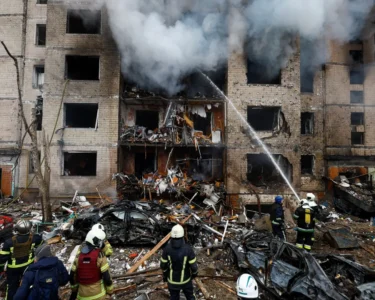A Glimpse of the new global commitment to end tuberculosis 75 ministers agreed to take immediate action to end tuberculosis by the year 2030. The announcement was made at the first WHO Global Ministerial Conference on Ending Tuberculosis in the Sustainable Development Era: A Multisectoral Response, which brought delegates together from 114 countries in Moscow.
President Vladimir Putin of the Russian Federation opened this Conference, together with Amina J Mohammed (UN Deputy Secretary General), and Dr Tedros Adhanom Ghebreyesus, Director-General of World Health Organization.
Dr Tedros addresses,
“Today marks a critical landmark in the fight to end TB,” adding that “It signals a long overdue global commitment to stop the death and suffering caused by this ancient killer.”
This anti-TB declaration would increase multisectoral action and track progress, as well as build accountability.
Also, it will inform the first UN General Assembly High-Level Meeting on TB in the upcoming year, that will seek more commitments from heads of state.
Global efforts to combat TB have saved an estimated 53 mn lives since 2000 and has reduced the TB mortality rate by 37 percent.
However, progress in several countries has stalled, and global targets are off-track while persistent gaps remain in TB care & prevention.
Consequently, TB still kills more people than any of the other infectious disease. Major problems are associated with antimicrobial resistance, and TB is the leading killer of people with HIV.
According to Dr Tedros lack of political will and inadequate investment is one of the main problems in fight against TB.
In the Americas
In the Americas, at the conference, PAHO Director Carissa F. Etienne said the Millennium Development targets relating tuberculosis were achieved ahead of the schedule. “Despite our relative success,” she also added, “we in the Americas face a difficult challenge: addressing tuberculosis in a way that no one is left behind. As with many other public health problems, the persistence of tuberculosis—a disease that is both preventable and curable—is largely the consequence of the serious social and economic inequities that persist in our region.”
She says that the fight against tuberculosis is a pressing one, but in order to sustain the momentum we require to keep building even strong health systems where quality services for tuberculosis, NTDs, HIV, malaria,emerging diseases, and noncommunicable diseases are available to everyone. And this is the path to success.
The PAHO Director noted that the commitments of the conference would provide with a tremendous opportunity to harness political backing to make the elimination of tuberculosis a reality. She stated that a world free of tuberculosis should be our ultimate goal.
The countries of the Americas have reduced new cases and deaths from TB in the past 25 years. Despite this, about 270,000 people contracted this disease in 2015, and some 50,000 don’t know they have it.
The commitment
Attendees of the meeting were ministers, country delegations, representatives of civil society and international organizations, as well as scientists and researchers.
Over 1000 participants took part in the two-day conference which consequenced accumulative commitment to ramp up action on four fronts:
Move to achieve universal health coverage -by strengthening health systems & improving access to people centered tuberculosis prevention and care, ensuring that no one is left behind.
Mobilize sufficient & sustainable financing by enhanced domestic and international investments to close gaps in research and implementation.
Advance research and development of the new tools to diagnose, treat, and prevent tuberculosis.
Build accountability by a framework to track and review progress on ending tuberculosis with inclusion to multisectoral approaches.
Ministers also promised minimization of the risks and spread of drug resistance and doing more to engage people and communities affected by, and at risk of, Tuberculosis.




